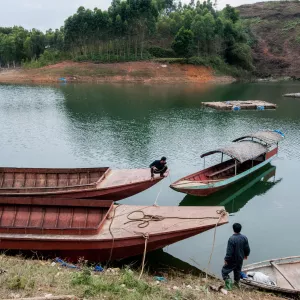From the Field: Insights from SPIA Country Studies Virtual Event
What can we learn from nationally-representative data on adoption of agricultural innovations? This question motivated a recent virtual event with CGIAR System Council and senior management, in which SPIA presented summary findings from the first pillar of our Work Plan: Country Studies with results from four countries – Ethiopia, Uganda, Bangladesh and Viet Nam. Beyond SPIA’s mission of analyzing, expanding, and deepening the

From the Field: Insights from SPIA Country Studies Virtual Event
What can we learn from nationally-representative data on adoption of agricultural innovations? This question motivated a recent virtual event with CGIAR System Council and senior management, in which SPIA presented summary findings from the first pillar of our Work Plan: Country Studies with results from four countries – Ethiopia, Uganda, Bangladesh and Viet Nam. Beyond SPIA’s mission of analyzing, expanding, and deepening the evidence of CGIAR research impact, SPIA fosters a collaborative spirit among a strong community of researchers and CGIAR centers, as noted by the Gates Foundation’s Ruben Echeverria. This spirit underpins sustained partnerships in these four countries that have been in place, in some cases for over a decade, in pursuit of better data that can help institutional learning within CGIAR.
The gameplan for the years ahead is laid out in the figure below. As of today, we have completed and reported on at least one round of data collection in each of the four countries. This work will continue, each study being led by new consortium of partners with SPIA backstopping, and with new countries now on-board in Phase 2 (Colombia, India and Nigeria) and qualitative preparatory work taking place for possible future data collection in an additional group of 12 countries.

